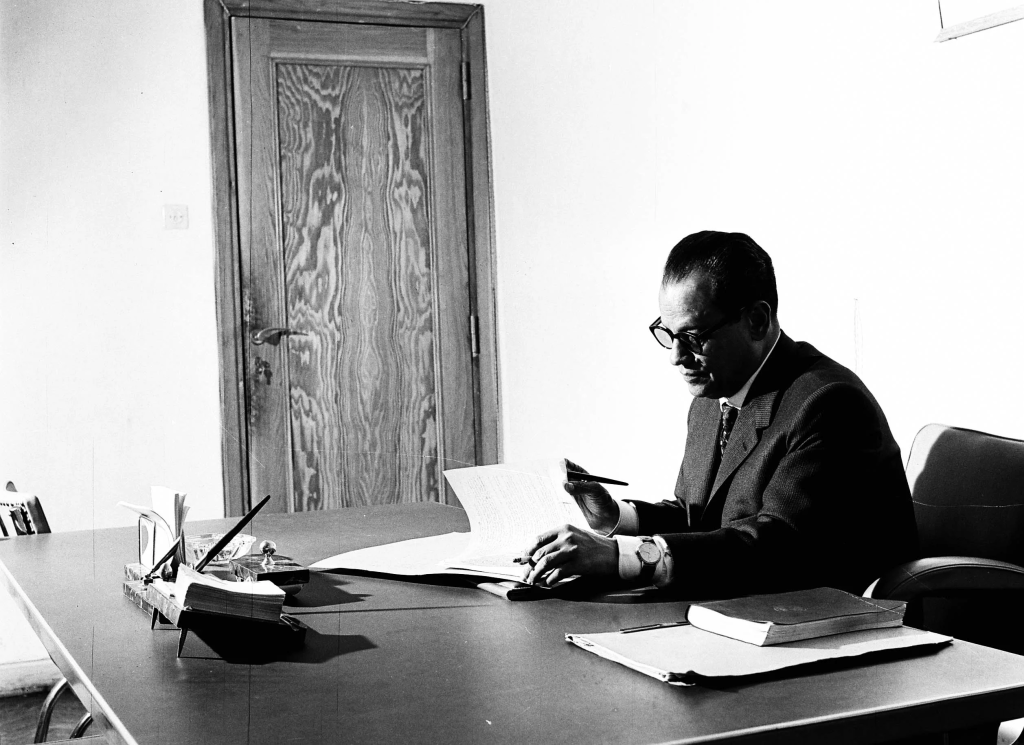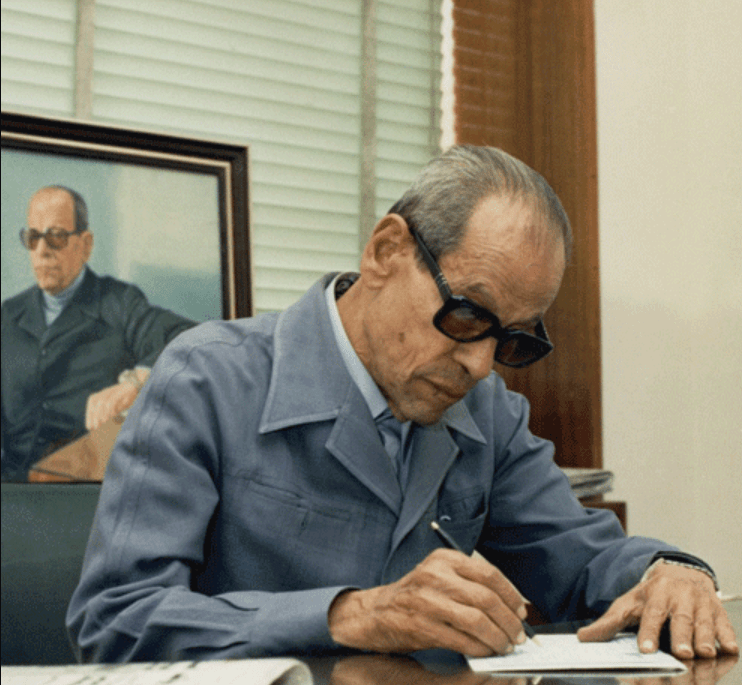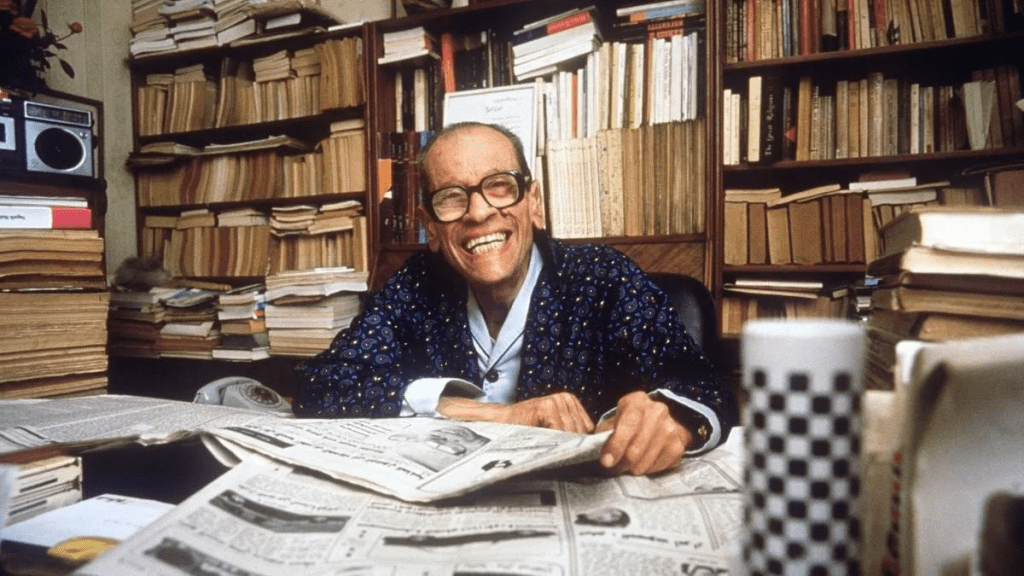On this anniversary of his passing, we remember Naguib Mahfouz — the father of the modern Arabic novel, the first and only Arab Nobel laureate in literature, and the writer who captured the soul of Cairo in his pages.
But behind the books and the awards lies a life full of strange coincidences, small miracles, stubborn patience, and near tragedies. Here are some lesser-known stories that make him even more unforgettable.
1. His Name Was a Thank You Gift
Mahfouz’s very name carries a story of survival. His birth was so difficult that his father had to call in a doctor — Naguib Mahfouz Pasha — instead of the usual neighborhood midwife. The doctor saved both mother and child. Out of gratitude, his father gave his newborn son the doctor’s name. From the very first breath, his life was marked by struggle, fate, and an identity shaped by chance.

2. Storytelling Began in a Café
Before libraries, before universities, there were Cairo cafés. In the neighborhood of Gamaliya, storytellers sat with a rababa (a string instrument) and spun tales night after night. Little Naguib sat and listened, mesmerized. Those smoky cafés, buzzing with voices and legends, became his first gateway into the world of fiction.

3. His First Payment Was Just One Pound
When Mahfouz began writing, he faced endless rejection. His early short stories were published without pay. After eighty stories, a publisher finally handed him one Egyptian pound for his collection Whispers of Madness. The amount was small, but for him it felt like owning the universe. That coin symbolized not money, but recognition.

4. The Critics Ignored Him for 25 Years
In Mahfouz’s time, Egypt had a literary elite — Taha Hussein, Al-Aqqad, Al-Mazini, and others — who acted as gatekeepers. Their praise could launch a career, their silence could bury one. They chose silence with Mahfouz. For twenty-five years, not a single word about his work appeared from them. His friends even nicknamed him “Saber” (the Patient). And yet, every day he bought newspapers, hoping to find his name. He never gave up.

5. He Wrote at the Same Café Table for Years
Mahfouz loved cafés not just for listening, but for writing. He rotated between five favorites: Kashmar, Isis, Orabi, El-Fishawy, and Ali Baba. At Ali Baba’s, he wrote his story, Love on the Pyramids Plateau. Years later, when it was turned into a film, he insisted that the love scenes be shot at the same café, on the same table by the window overlooking Tahrir Square. For him, place was never just a backdrop — it was a character.

6. A Joke Became a Legendary Novel
One evening in the 1940s, actor Ahmed Mazhar jokingly called Mahfouz and his circle of friends “the Harafish” — a slang word for vagabonds, street people, the riff-raff. Mahfouz embraced the name. Years later, it became the title of one of his most famous novels, a tribute to the ordinary people of Cairo’s alleyways. What began as a joke became a literary legacy.

7. He Tore Up His Own Diaries
Mahfouz wrote diaries for years — then destroyed them. He never kept drafts either. Once a novel was typed, the handwritten version was thrown away. When asked why, he simply said: “I wanted the reader to see from me what I wanted to say.” His life remained private, his pages only for fiction. A mystery preserved by fire.

8. He Answered the Nobel Knock in Pajamas
When Mahfouz won the Nobel in 1988, he knew he had been nominated but never imagined he’d actually win. On the day the announcement came, the Swedish ambassador rushed to his house with the news. Mahfouz opened the door in his pajamas — an image that captured who he was: modest, unassuming, and completely detached from the spectacle of fame.

9. He Survived an Assassination Attempt
In 1994, extremists who opposed his novel Children of Gebelawi tried to kill him. A man stabbed him in the neck outside his home. At the time, Mahfouz was in his eighties. He miraculously survived but lost full use of his right hand.

A Life Larger Than His Novels
Mahfouz was more than a writer. He was Cairo’s witness, Egypt’s conscience, and the stubborn bull who refused to stop writing even when the world tried to silence him. From a name born in struggle to an assassination attempt survived, from the pound that made him feel rich to the Nobel he never expected, his story reminds us that literature is never just words — it’s survival, memory, and a fight to be heard.
WE SAID THIS: Don’t Miss…Picture of the Day: A Snapshot of Naguib Mahfouz at His Favorite Table in Ali Baba’s Cafe, 1988


